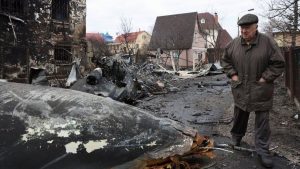Table of Contents
The ongoing conflict in Gaza proceeds to escalate, resulting in the misfortune of hundreds of lives and the relocation of families. In spite of these critical circumstances, the worldwide community shows up detached. The global discussion around the attack on Gaza has moved toward Israel’s addition of historic Palestinian regions. This move has not been around avoiding the injustice but maybe ensuring that Palestinians, turned refugees, won’t look for refuge somewhere else.
This time, the tragedy of the Nakba, a term referring to the relocation of Palestinians in 1948. It is being broadcast universally. The situation in Palestine can now not be depicted as insignificant genocide or ethnic cleansing. However, it has come to the point of total deletion.
Disappearing from Maps
A critical portion of this erasure is the deliberate endeavor to delete Palestine from maps and digital platforms. If you look for “Palestine” on platforms like Apple or Google Maps, you won’t discover it; only Israel is shown. In a few cases, you might find a minor region labeled as “Palestinian Regions,” emphasizing the term “Occupied.”
Beyond geography, the concept of Palestine itself is being deleted. The unforgiving reality is denying Palestinians their homeland, rendering them stateless and awakening them to the harsh truth recognized for eras. This erasure isn’t fair during times of war but also during peace.
The Abraham Accords, a peace bargain brokered between Arab states and Israel. This notably excludes Palestinians, the foremost influenced party in this struggle. This avoidance ignores their situation, contradicting the exceptional thought of accomplishing peace within the region.
Framing the Conflict
Moreover, the continuous military campaign by Israel against Palestinians is inaccurately framed as a “war between Israel and Hamas.” This story erases the reality that Palestinians have persevered against Israeli occupation and persecution for more than 70 years. By expelling Palestine from the conversation, Israel maintains a strategic distance from questions around the root cause of these assaults – the delayed occupation of Palestinian domains.
The term “Palestine” carries immense weight, representing all-inclusive victimhood and stories of persecution. When included in discussions, it highlights Israel’s questionable activities and approaches. The ethical burden of Palestine is so overwhelming that Israel endeavors to eradicate it, both metaphorically and truly, from the map. Unexpectedly, Israel, in spite of its endeavors to erase Palestine, argues for assurance from the United Nations, claiming to be under threat of eradication.
This situation underscores the profound complexities and ethical challenges confronted by both nations and the worldwide community as they hook with the persevering struggle within the region.
The Impact on Civilians in Gaza
The rising conflict has obliterated the civilian population in Gaza, making it one of the most densely populated zones in the world. The Israeli airstrikes have caused critical harm to private buildings, foundations, and imperative administrations such as individuals, children, hospitals, and schools. Reports of civilian casualties, counting ladies and children, proceed to develop, further increasing concerns about the humanitarian crisis. The individuals of Gaza already confront immense challenges such as poverty, unemployment, and limited access to essential necessities. The escalated violence only develops their suffering and exacerbates the already desperate conditions they persevere.
Hundreds Likely Dead in Gaza Hospital Blast
An enormous blast occurred in a Gaza City hospital filled with injured individuals and Palestinians seeking protection. The Hamas-run Health Service reported that hundreds of people died in this incident. The blame amusement is ongoing, with Hamas blaming an Israeli airstrike, whereas the Israeli military holds other Palestinian militants responsible for a misfired rocket.
Developing Rage and Territorial Effect:
As the news of the hospital tragedy spread, anger intensified in the region. President Joe Biden’s trip to the Middle East aimed at preventing the war from spreading faced complications. Jordan’s foreign minister canceled a territorial summit where leaders, including Jordan’s King Abdullah II, Palestinian President Mahmoud Abbas, and Egyptian President Abdel Fattah el-Sissi, were planned to meet.
The circumstances within the Israel-Hamas strife are pushing the region towards a basic point, with Jordan emphasizing the need for the summit to focus on finishing the war and helping Palestinians. President Biden’s visit has been limited to Israel, and the territorial summit in Jordan has been delayed. The White House recognizes the gravity of the situation and its effect on territorial strategy.
Hospital Tragedy and Desperate Needs:
The blast at al-Ahli Hospital resulted in terrible scenes, with affirmed reports of numerous casualties, including young children. The region is hooking with critical helpful needs. The U.S. has been attempting to persuade Israel to permit the delivery of supplies to desperate civilians, aid groups, and hospitals in Gaza, which has been under attack since the later violence. People in Gaza are frantically looking for essential necessities like bread and water.
Hamas labeled the hospital impact a “horrendous slaughter” and pointed the finger at an Israeli strike. However, the Israeli military ascribed the incident to Islamic Jihad, a radical Palestinian aggressor group that frequently collaborates with Hamas. Conflicting claims and a complex flow deface the circumstance.
Territorial Challenges and Developing Pressures:
The hospital catastrophe activated challenges in different places, including the West Bank, Beirut, Iraq, and Amman. The tension is discernable, and there’s a developing concern about the circumstances within the region. With tens of thousands of troops amassed along the border, Israel’s plans remain questionable. Ground attack could be a plausibility, but no authoritative activity has been declared.
The struggle has led to a serious humanitarian emergency, with a considerable number of casualties and infrastructure harm. The focus is on tending to the pressing needs of civilians caught in the crossfire.
Attacked on Saint Porphyrius Orthodox Church in Gaza
The recent Israeli attack on the Church in Gaza resulted in the death of 18 people. This also includes former US Congressman Justin Amash’s relatives. The incident took place when the church, serving as a protection, was struck by an Israeli airstrike. Amash expressed his melancholy in reaction to the tragedy and called for God to grant rest to the souls of those who lost their lives.
The former congressman from Michigan shared the information concerning the tragedy through social media, expressing that his family is ” hurting badly.” Amash’s explanation moreover highlighted the progressing battles confronted by the Palestinian Christian community, which has been persevering through numerous hardships in recent times.
It is worth noticing that Amash already served as a part of the Republican Party but left it in 2019. Also, he has chosen not to look for re-election a year afterward. The former congressman’s explanation gives a strong update on the effect of the continuous conflict within the Gaza Strip, which has resulted in the misfortune of numerous innocent lives.
The Backlash to Supporting Palestine
Authorities are increasingly investigating and subjecting protestors who speak out against Israel’s actions in Gaza to violence, raising serious concerns about the situation. This is often not as it were apparent in France and Harvard University, but also in different other nations and districts. Palestinians living in Israel, in particular, regularly face a challenging situation as they find themselves caught between two sides. They may encounter threatening vibes from both ends of the strife.
Moreover, the recent killing of a six-year-old in the United States has raised fears of the strife spilling over into other parts of the world. Such displays of viciousness can deeply concern not only those directly affected but also broader communities, including Arabs and Muslims. In fact, although people regularly treat them as two diverse categories, similar forms of partiality confront the two groups, and they have long been the target of segregation and savagery universally.
In light of these events, it is worth considering whether Israel’s conflict in Gaza may compound pre-existing biases against Arabs and Muslims. With emotions running high on both sides, there’s a chance that people may compare an individual’s religion or ethnicity with their connection to the strife, driving to assist segregation and violence. As such, it is basic that we consider how we are able to overcome these prejudices and work towards an enduring determination for all those influenced by the conflict.
The deepening crisis in Gaza demands critical attention and activity from the universal community. One cannot disregard the ongoing violence and enduring compassion. Governments, organizations, and people must come together to weigh the parties involved to de-escalate the conflict and work towards a just and enduring solution. Discretionary efforts, compassionate help, and support for activities that advance exchange and compromise are fundamental steps toward accomplishing peace within the region. Collective activity and a commitment to justice and sympathy can break the cycle of violence, leading to a brighter future for Palestinians.
More than 30 innocents Dead In A Mass Shooting Massacre At Thailand’s Child Care Institute



